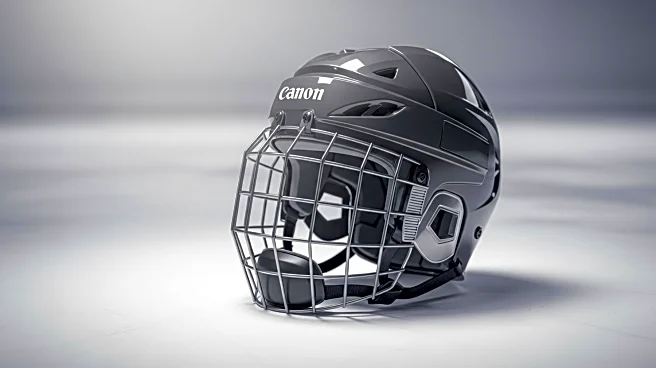What is the story about?
What's Happening?
Seattle Kraken defenseman Ryker Evans is set to miss six to eight weeks of play due to an upper-body injury, as announced by the team. The 23-year-old player will be absent for the initial weeks of the season, including the Kraken's opener against the Anaheim Ducks on October 9. Evans, who recently signed a two-year contract extension worth $2.05 million annually, has been a key player for the team. In his first full season, he recorded 25 points with five goals and 20 assists over 73 games. Evans was Seattle's second-round pick in the 2021 draft and made his NHL debut in December 2023.
Why It's Important?
Evans' injury is a significant setback for the Seattle Kraken as they prepare for the upcoming NHL season. His absence will impact the team's defensive lineup, potentially affecting their performance in the early games. Evans has shown considerable growth since joining the NHL, and his development is crucial for the Kraken's long-term strategy. The team will need to adjust their defensive strategies and possibly rely on other players to fill the gap left by Evans. This situation underscores the challenges teams face with player injuries and the importance of depth in the roster.
What's Next?
The Kraken will need to strategize on how to manage their defense without Evans for the next several weeks. This may involve promoting players from their minor league affiliates or adjusting their current lineup to compensate for his absence. The team will also be monitoring Evans' recovery closely to ensure he returns to play at full strength. As the season progresses, the Kraken's performance without Evans will be closely watched by analysts and fans alike, potentially influencing their standing in the league.
Beyond the Headlines
Evans' injury highlights the physical demands and risks associated with professional hockey. It also brings attention to the importance of player health management and the role of medical teams in ensuring athletes' well-being. The Kraken's handling of this situation could set a precedent for how teams manage similar challenges in the future, emphasizing the need for robust support systems for injured players.















